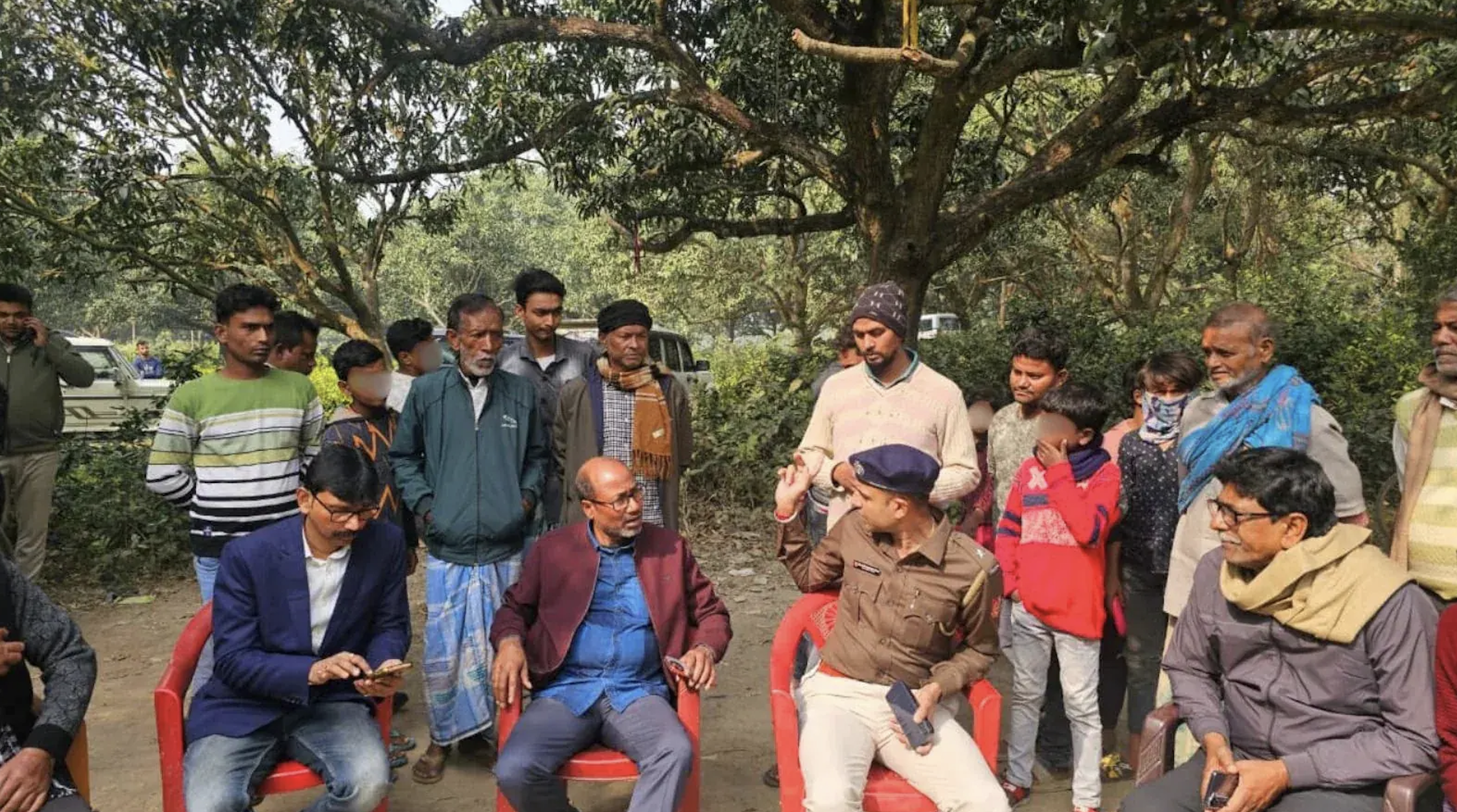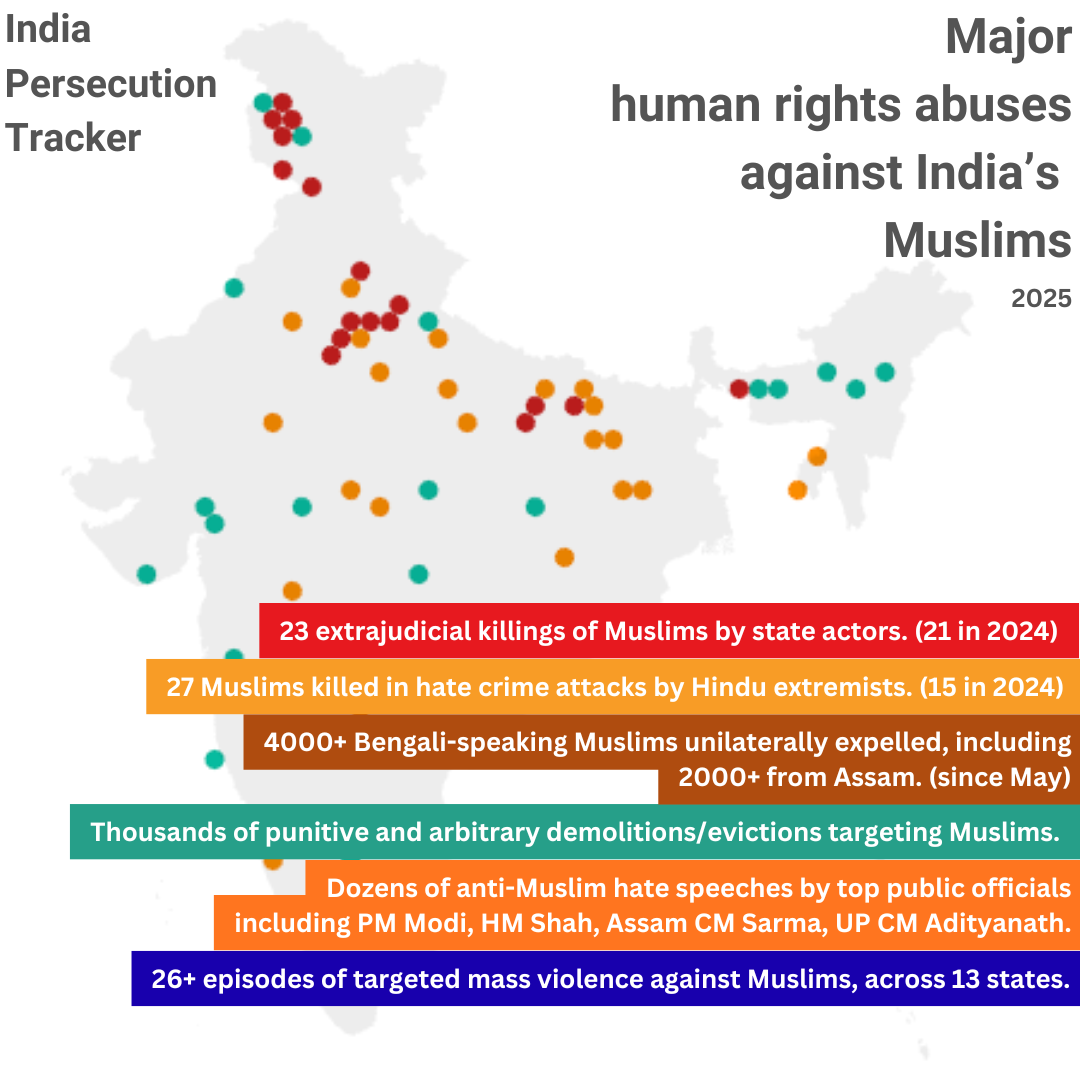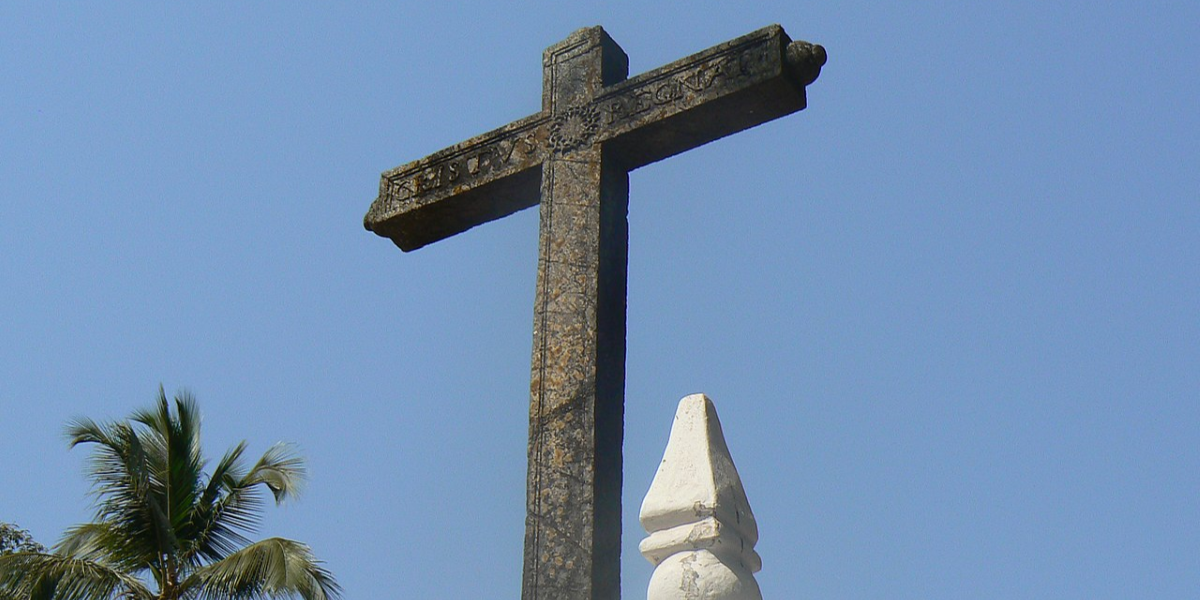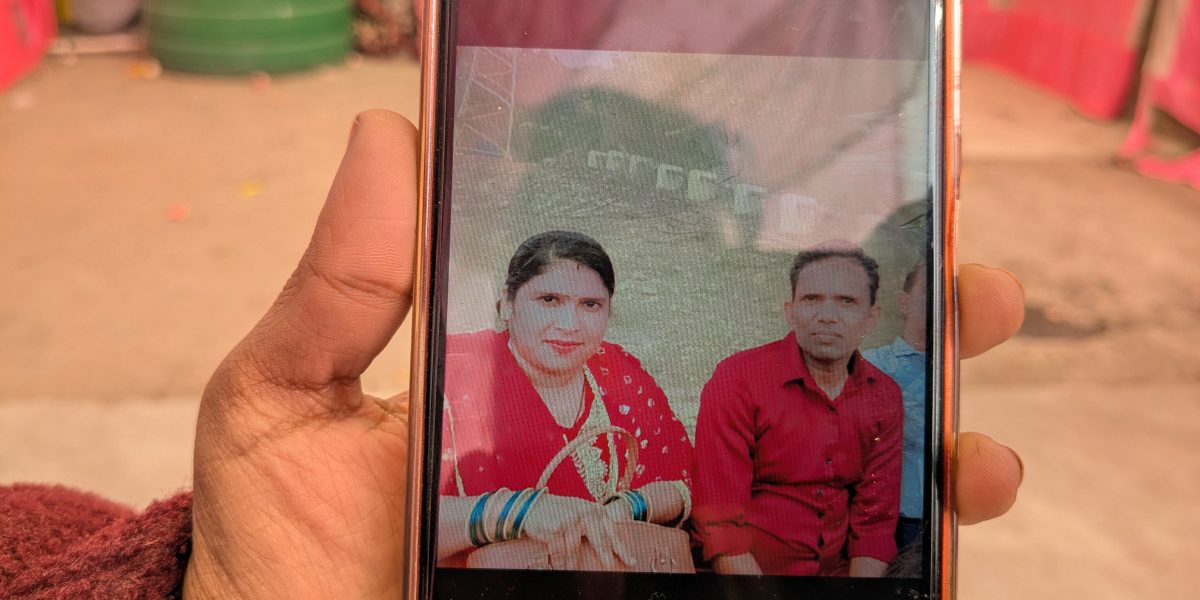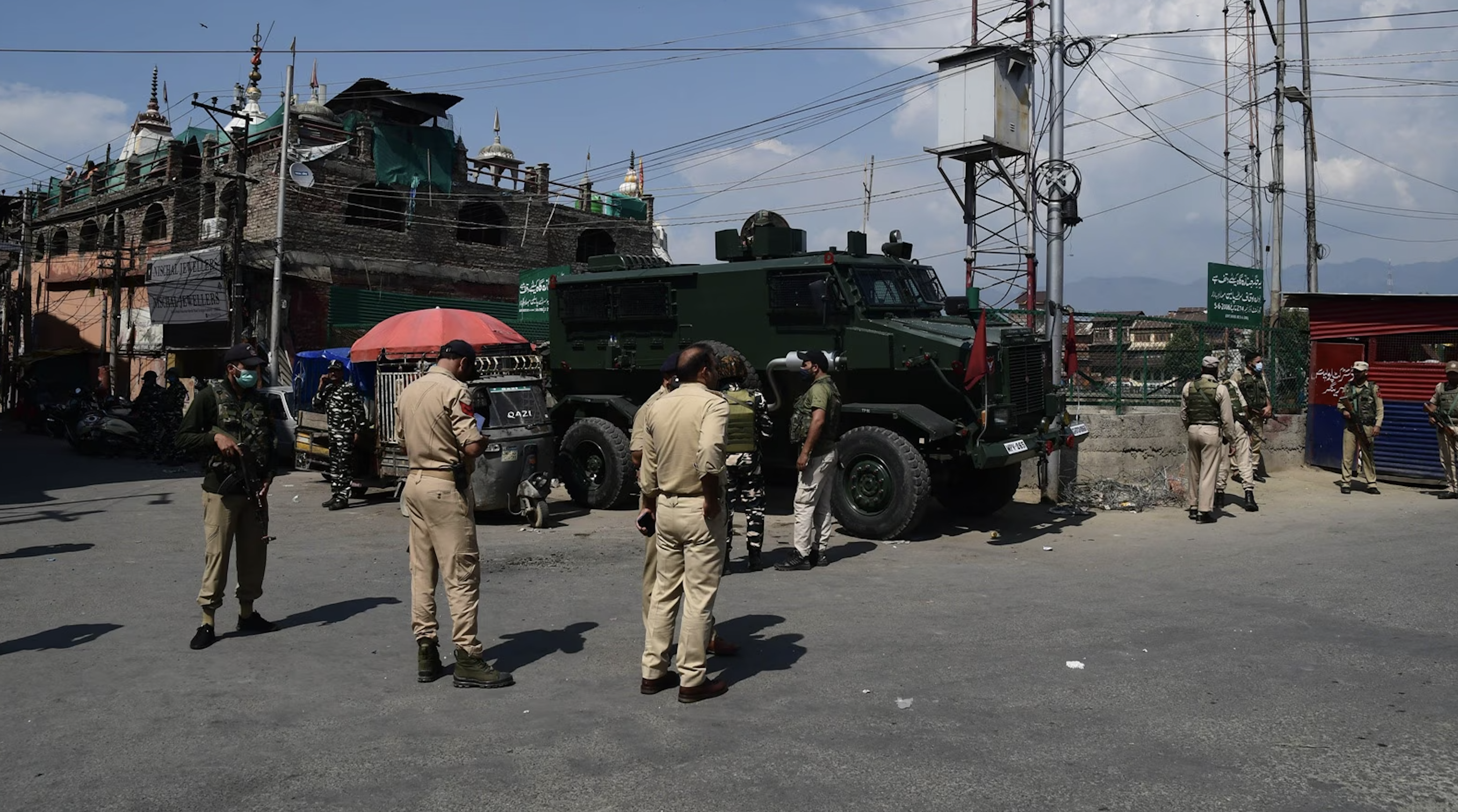
By ALISHAN JAFRI & ZAFAR AAFAQ
[Trigger Warning: This story discusses organised campaigns glorifying and advocating sexual violence against Muslim women.]
Lucknow/New Delhi: Hasiba Amin, a national coordinator for the Congress party with 139,000 Twitter followers, opened her account on 13 May, a day before Eid, to find that she had been “sold” in an online “auction”.
“These people are placing bids to own me and this handle claims that I have been sold to someone. He says ‘enjoy brother’,” Amin tweeted. She later said that she had filed an FIR (first information report) and hoped that Delhi police “punishes him as per law”.
“I was scared to see my old pictures uploaded by these trolls on social media,” Amin told Article 14. Her pictures were uploaded by an anonymous handle that went by DesiSulliDeals (sulli is a derogatory term for Muslim women used by several abusive rightwing handles) and has since changed his name and display picture to Mahmud Alam, who purports to be an old, Muslim man, Amin said.
“While I kept tagging the police and Twitter authorities, the account continued making insulting remarks about my religion and gender,” she said.
Journalist Sania Ahmad was also targeted by an anon account, Sullideals101. “This account has been harassing me since the past one year. I had complained but that went in vain,” she told Article 14. “The recent experience was chilling and no woman should go through this. Filing complaints against one or two individuals won’t help. This whole ecosystem needs to be tackled.”
Such abuse clearly violates Twitter community standards about violent threats and glorification of violence based on gender and religious affiliation. Both Amin and Ahmad said the abuse continued despite their protests to Twitter.
On 16 May, Amin tweeted to say she was joining Sania Ahmad in taking legal action against Twitter India for “enabling violence against Muslim women.
“There is an entire ecosystem of abusers on Indian Twitter,” said Ahmad. “And it is the responsibility of the platform to ensure such accounts are suspended and legal action taken.”
These accounts are in violation of Indian law, including sections of the Information Technology (IT) Act, 2000, laws for crimes against women and communal hate-mongering, said Anas Tanveer, the lawyer representing Sania and Hasiba. But he said this was not possible without the “complicity” of the platforms.
“The new IT rules hold intermediaries like Twitter responsible for what’s posted on their platform,” said Tanveer. “Blocking individual accounts will not stop this harassment. Social media platforms need to make their spaces safer for women.”
A Sexualised Campaign Targeting Muslim Women
The Eid “auction” plumbed new depths in an ongoing targeted and sexualised campaign against Muslim women, particularly those seen as critical of the ruling Bharatiya Janata Party (BJP) government.
The campaign, growing in intensity, has raged unchecked for at least three years, and comes at a time when the rightwing has continued to insist on the veracity of a “love jihad” campaign, which alleges, with no basis, as Article 14 reported in April 2021, that Muslim men supposedly entrap Hindu women in order to convert them.
The fact that no evidence of this love jihad has ever been presented has not stopped five states, starting with Uttar Pradesh, from enacting laws against it, effectively banning or restricting interfaith marriages. Those laws have been challenged in the Supreme Court, but police forces, governments and advocacies have paid little attention to the ongoing online sexual assault on Muslim women.
But the ongoing online sexual assault on Muslim women has gone virtually unchallenged.
Scores of social media accounts with obviously fake names—Farzana Begum (65,400 followers on Twitter), Zalim Hindu (1,420 followers),Pakiza Momina Alima (2,283 followers), Saira Besharam (2,128 followers) and Arjun Pandit (669 followers)—promote material that is not only pornographic but also glorifies sexual violence against Muslim women.
Innumerable accounts like these, post graphic pornographic content where Muslim women, or “sex-slaves of kattar Hindu men”, are shown asking for sex with Hindu men. These men often describe themselves as “owners of Muslim women” and their profiles are peppered with words like “uncut” (uncircumcised) and “bull”.
Muslim men are termed as “katuwas” (a slur for circumcised men) who are supposed to be sexually inferior and “cannot satisfy women.”
Plumbing New Depths
Ritesh Jha, a 23-year-old resident of Gurugram, according to the website Newslaundry, is active on YouTube, Twitter and Telegram. He runs two channels on YouTube with a combined viewership of 200,000. The two accounts are “Liberal Doge” and “Secular Doge” (doge is an Islamophobic caricature of a Muslim man morphed with a dog).
Jha’s posts violate the community and safety standards (here, here and here) of all three social-media platforms, but no action has ever been taken against him.
On the morning of 13 May, reports Prateek Goyal of Newslaundry, the Liberal Doge channel began posting pictures of Pakistani women, saved without their permission from their social media accounts. The channel’s audience of 86,000 people were free to “rate” the women and “auction” them off to each other.
When the news of this “auction” broke on Twitter with calls to report this illegal activity, the livestream went private. But, the handle also received a lot of support with the hashtag #IAmWithLiberalDoge (the account was deleted and restored after two days on all the platforms).
Ajay (name changed) who reported against Liberal Doge told Newslaundry: “He asked me why, as a Hindu, I support Muslims, instead I should hate them. I didn’t get into a verbal spat with him. So, he started talking nicely and said his job is to brainwash secular people. After sometime, he told me that if I know any Muslim girls, he’ll arrange a room for me at my workplace. He said, ‘You can get the Muslim girls, we can rape them together and will make MMS.” In one of his chats, Jha claimed he had raped a Bangladeshi Muslim cook and made her MMS go viral in 2018.
Hindu Women Also Targets But Special Abuse For Muslims
Supporters of both these handles, Doge and Keshu, point out that Twitter is filled with accounts posting derogatory content against Hindu women too.
The fact that social media can be toxic to all women, regardless of religion, region, political affiliation and even nationality, is indisputable (see here and here). But in India, Muslim women in particular are subject to an orchestrated rightwing campaign, abused for both their gender and their religion.
Following the Trinamool Congress sweep in West Bengal, a number of accounts bearing the names of Hindu women, the substantialpornographic Bhumi Mishra for instance, tweeted that a TMC win “means another 5 years of carefree corruption of slutty hindu women by strong muslim men and growth of ‘sickular relationships’.”
Our investigation revealed scores of accounts on social media with content that demeaned Muslim women as sex objects for Hindu men. The nature and content of these posts point towards an organised but obscene, and illegal, campaign by followers of the Hindutva rightwing.
A cursory glance at these accounts revealed a common pattern of content. Many of these accounts follow each other and interact and amplify each other’s content.
These accounts share hundreds of pornographic videos of women in hijab every day, with inflammatory captions such as “Hindu tigers, f*ck us.” There are a range of messages on these social media accounts, presenting Muslim women as objects meant to be violentlyraped.
Videos of Hindu men donning tilaks and saffron scarfs, forcibly applying Holi colour, tilak, tika or sindoor on the bodies of veiled women who are shown as reluctant but submissive are regularly shared by these accounts.
Photoshopped pictures of Hindu men and pregnant women in saffron hijab are also widely shared by these accounts. The content is replete with references to Hindu rashtra where kattar Hindu men will take over Muslim women and teach them a “lesson”.
In many cases, the accounts use images of actual Muslim women stolen from their personal social media accounts as their display pictures and in posts with obscene and Islamophobic captions.
There are hundreds of Facebook pages, accounts and Twitter profiles impersonating Muslim women with tens of thousands of followers sharing this content forward.
Taking Their Cue From Real-Life Hate Campaigns
These anonymous, abusive social media accounts tend to mirror real life hate campaigns.
Following the revocation of Jammu and Kashmir’s special status by the central government in August 2019, Haryana Chief Minister Manohar Lal Khattar “joked” at a Beti Bachao event: “Now people are saying doors of Kashmir have been opened and we can get girls from there.”
Some of the more egregious comments go back several years but still echo on social media. For instance, the idea of Muslim women being deprived of sexual satifaction echoes a 2015 tweet by BJP MP from Bangalore Tejaswi Surya who said: “95% Arab women have never had an orgasm in the last few hundred years! Every mother has produced kids as act of sex and not love.”
Also in 2015, Yogi Adityanath, then still a BJP MP from Gorakhpur and chief of the Hindu Yuva Vahini, had said: “If they convert one Hindu woman, we will convert 100 Muslim women.” There is also the 2015 infamous video where he is seen sharing the stage with one of his associates who called for the digging up of the graves of Muslim women and raping them.
Muslim women seem to be an obsession with the rightwing ecosystem. A catchphrase frequently used by rightwing handles is: “Oh Hindu sons of Mother India, make us proud, apply sindoor to the burqawali begums.”
This obsession with Muslim women is evident in real life. A video shot in 2018 that went viral in April this year, shows Sukhdev Sahadev, a worker of the Hindu Raksha Dal, promoting the idea of forging strategic relationships with Muslim women with the express intention of “weakening” the community.
Or take a private Facebook group, Bahu Lao, Beti Bachao with 48,400 members by Bajrang Dal Abhiyan that promotes interfaith marriages between Hindu men and Muslim women. The group lists why Muslim women should prefer Hindu men, including such “benefits” as protection from talaq, no burqa, no burden of multiple children, no molestation by family members like father, brother or uncle.
This list of “benefits” is in line with what the Vishwa Hindu Parsihad’s (VHP) Sadhvi Prachi had said in 2018: “Muslim girls should marry Hindu boys in order to get rid of nikah halala and triple talaq.”
In August 2018, the Akhil Bhartiya Hindu Yuva Morcha, a militant Hindutva organisation announced a reward of Rs 250,000 and six month free accommodation to any Hindu man who married a Muslim woman. In 2017, another Hindu group affiliated to the RSS, the Hindu Jagran Manch announced the marriage of 2,100 Muslim women with Hindu men. The manch continues to organize events and meetings for its “bahu lao” campaign to get Muslim daughters-in-law. A year later, the VHP also called upon Hindu men to marry Muslim women and convert them, a campaign endorsed by BJP Bengal’s general secretary Rahul Sinha.
On 29 January 2021, a tweet by a Mauryavanshi Sana, a self-described “BJP supporter, NAMO fan” with 11,500 followers asked Hindu men to form teams “to trap adolescent Muslim girls, indoctrinate them and marry them when they finally turn 18.”
This message of the campaign resonates with the philosophy of VD Savarkar, the ideologue of Hindu rightwing nationalism, who proposed in his Six Epochs of History sexual violence against Muslim women. He was angry with Hindu kings like Shivaji for not showing retribution towards captured enemy women and found this to be a perverted idea of chivalry. “He said that Pakistan’s inhuman and atrocious activities like the kidnapping and rape of Hindustani women can only be stopped when we respond in a like manner,” noted his biographer Dhanajay Keer.
But both campaigns, the one on social media and the other played out in the real politics of hate, have deadly results.
On 1 April this year, a Muslim man was stabbed by Bajrang Dal extremists in a bus for traveling with a Hindu woman in Mangalore.
Rape As A Weapon Of Violence
Arfa Khanum Sherwani, journalist and editor at website TheWire frequently finds herself the target of hate and threats of sexual violence on Twitter and social media.
Sherwani told Article 14 that words like begum and hijabi have been converted into sexualized slurs to attack Muslim women just like jihadi is used to abuse Muslim men.
“The word halala is used by IT cell trolls as a coded rape threat. There is a campaign to attempt to incite sexual violence and other crimes against Muslim women but its larger goal is to further isolate Muslim men from society,” she added.
Rape as a weapon of violence was used against Muslim women in the 2002 Gujarat pogrom and the 2013 Muzaffarnagar riots.
“Right before the anti-Muslim carnage broke out in Gujarat, we saw mass distribution of hundreds of pamphlets with all sorts of messages spreading hatred against Muslims. One such pamphlet named Jihad inciting sexual violence against Muslim women was circulated,” journalist Teesta Setalvad told Article 14. “In the next few months 300 to 500 Muslim women were raped, killed and mass humiliated in full public view.”
The propaganda achieved two aims, continued Setalvad. “It creates a band of men who view women of a particular community as targets for mass sexual violence,” she said. And, the second, “In every instance of mass violence, women are attacked to insult and attack the honour of a community.”
In March 2018, Jammu and Kashmir state minister for Industries and Commerce Chander Prakash Ganga and Forest Minister Lal Singh of the BJP participated in a rally by rightwing groups in support of the men accused of raping and killing an eight-year-old child in Jammu’s Kathua.
More recently, activist Safoora Zargar was abused and shamed for her pregnancy by BJP leaders and supporters. This happened in the backdrop of a campaign that labelled Muslim women who were protesting the Citizenship Amendment Act, 2019 (CAA) as paid slu*s, “charging Rs 500” while their “pimp” husbands were hiding at home.
Porn videos of women in hijab claiming that these were filmed in Shaheen Bagh were mass circulated on Twitter and Facebook. Notably, many of these fake “muslimah” accounts shared fake pornographic posts and passed them off as women of Shaheen Bagh who were leading the protests against the controversial CAA. Targeted campaigns run by BJP supporters and Facebook groups such as We support Narendra Modi shared morphed porn pictures of anti-CAA activists.
The posts are, “clearly intended to provoke mass sexual violence against Muslim women,” said Kavita Krishnan, secretary of the All India Progressive Women’s Association. She referred to how such hateful social media ecosystems were used to trigger genocide in Myanmar. “The same is now happening in India, and Facebook and Twitter are complicit, as is the government of India,” she said.
In January 2021, SA Bobde, then the Chief Justice of India, issued notice to the central government and Twitter to crack down on bogus accounts that incite violence and spread misinformation.
In January, there was indeed a crackdown on hundreds of Twitter accounts, not against fake accounts spreading misinformation and spewing communal venom but against critics of the Modi government including Caravan magazine.
In a report called Toxic Twitter, Amnesty International criticised Twitter for failing to protect women from online hate crimes in spite of repeated assurances.
The systemic nature of this online Islamophobic, racist, casteist and misogynist abuse indicates that it is produced and circulated by organised groups, said Professor Shakuntala Banaji who teaches at the Department of Media and Communications, London School of Economics.
Banaji and her colleague, Ram Bhat have conducted extensive research on online hate in India and analysed evidence of the most violent, inciting content that “uses women’s bodies and sexualises them to combine both references to religion (Christianity, Islam) and/ or colour and caste (skin colour, status).”
While conducting their research, Banaji and Bhat interviewed men and even women who circulate this content who told them that they did it because it is their “religious and civic duty” to protect India from “foreign values”, Banaji told Article 14. Dozens of accounts are often run by the same individual, she added.
The accounts, mostly anonymous, know that there is hardly any precedent for anyone in India from being prosecuted for misogynistic or hate speech. They are also aware that even if one handle is banned by a platform, it is easy to set up another account using another anonymous handle.
This story is first appeared on article-14.com


